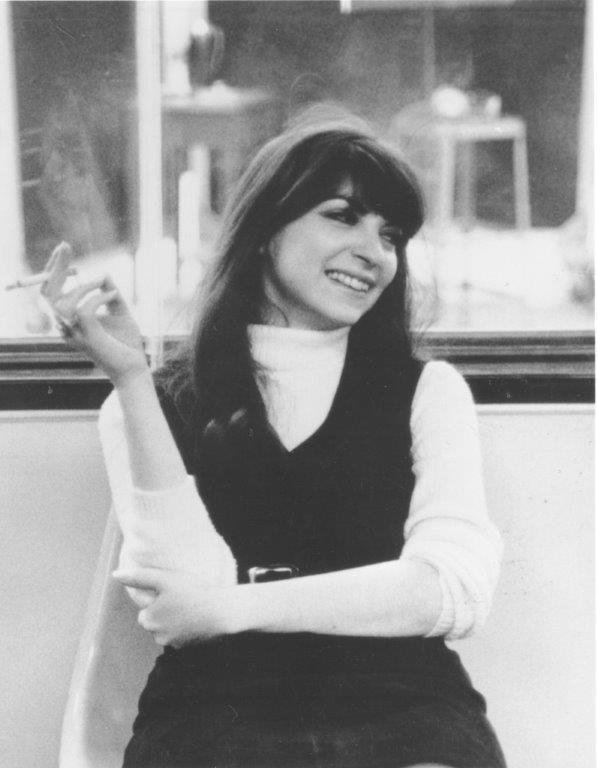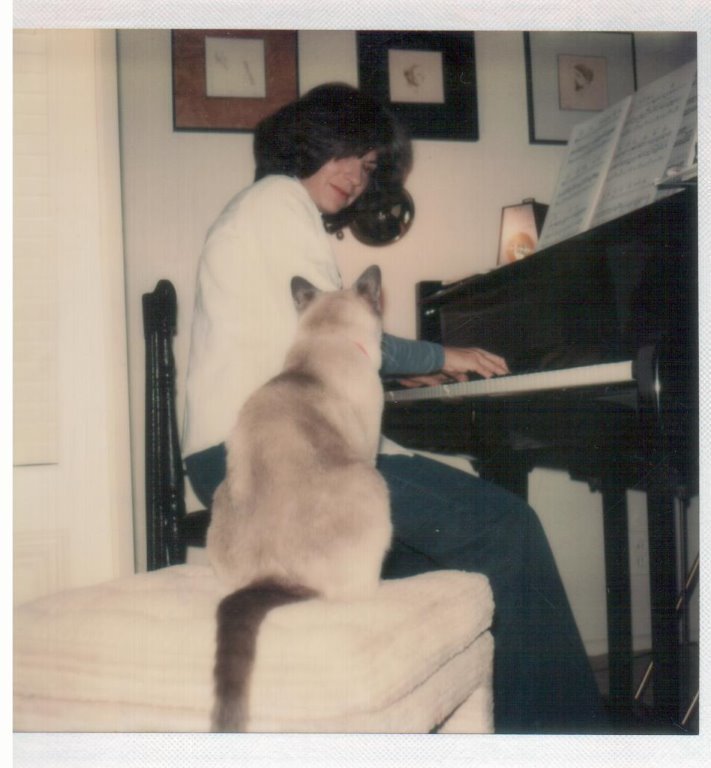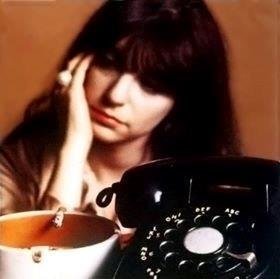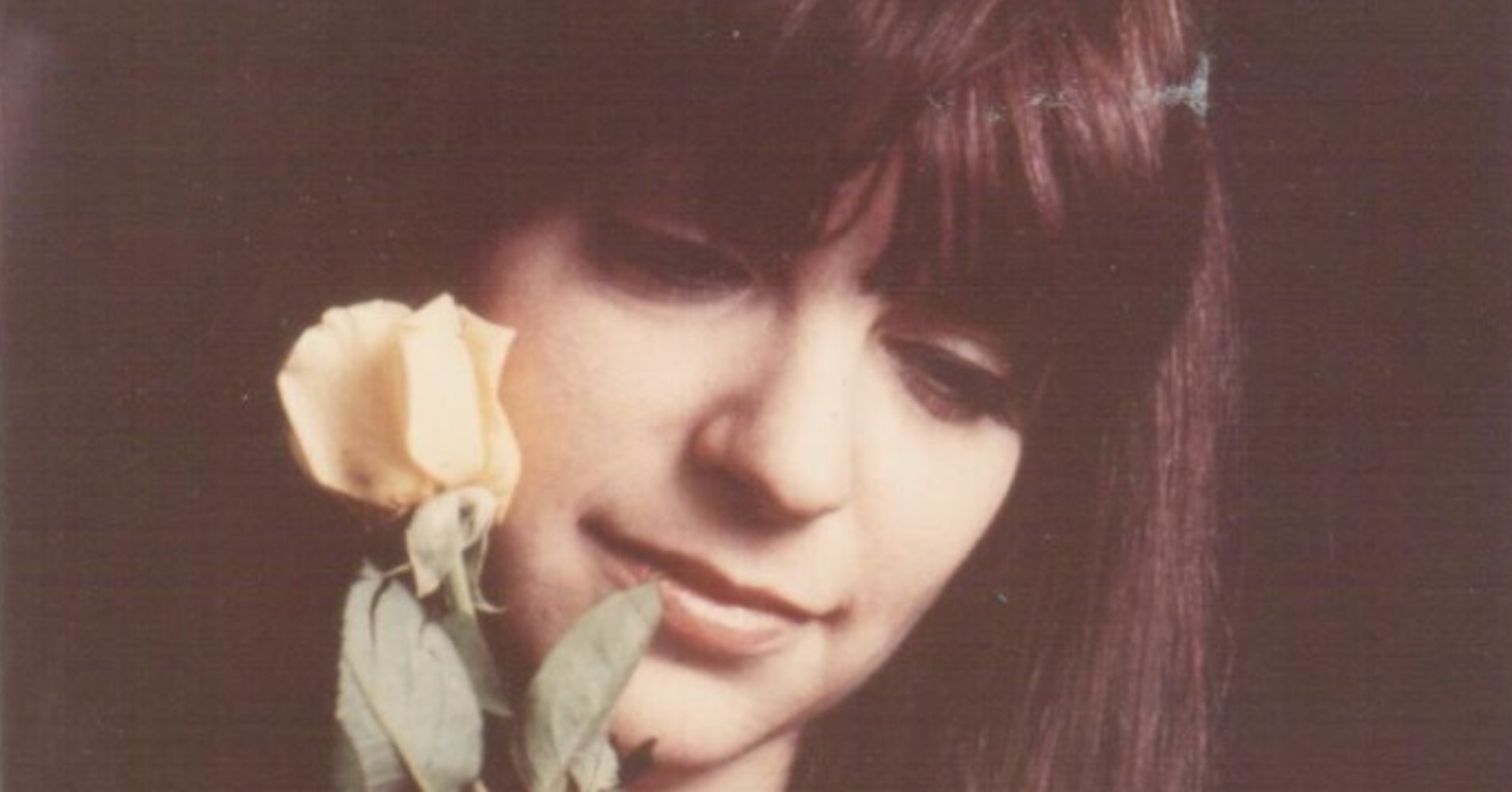[ad_1]
On Valentine’s Day, I was in my apartment perusing Spotify for some hot and heavy mood music when the algorithm ― perhaps knowing me better than myself ― recommended a 2007 song called “16 Words” by Margo Guryan.
I was hankering for a love song, but what I got was an unsettling and carnivalesque something else. The chorus ― and the rest of the lyrics, actually ― revolve around 16 notable words from President George W. Bush’s 2003 State of the Union address: “The British government has learned that Saddam Hussein has recently sought significant quantities of uranium from Africa.” (Many Bush opponents believe the proclamation was inaccurate and was employed to persuade the country to go to war with Iraq. Happy Valentine’s Day!)
Guryan sings the phrase over and over again to a marching-band-like beat, interweaved with snippets of Bush’s voice. The song is not quite the romantic banger I had anticipated, but it intrigued me nonetheless. So I clicked on the artist’s name. Aside from “16 Words,” she had one album to her name: “Take a Picture,” made in 1968.
A psychedelic burst of drums kicks off the opening track, “Sunday Morning,” melting into a groovy haze of pure, slothful bliss. “Sunday morning, sun shining on your eyes,” Guryan sings. “Sleepy face. Smiling into mine. Lots of time with nothing to do. Lots of time to spend with you. On Sunday morning.” It is sedate and syrupy, best enjoyed with lids half opened and covers pulled overhead. Unlike the Velvet Underground’s “Sunday Morning,” a lullaby laced with anxiety and dread, she sings of a morning that extends unbothered and uninterrupted into the afternoon and evening. Like in the Commodores’ “Easy,” Monday seems worlds away.
The rest of the album is similarly airy and intoxicating, filled with complex melodies masquerading as fizzy ear candy. Its vibe is often compared to the Beach Boys’ — a major influence. After listening to the whole thing twice, I was desperate to know more about the woman who created it, who had seemingly disappeared from the music scene entirely, save for the one strange political anthem made four decades later.

Now 80 years old, Guryan lives in Los Angeles. Shortly after launching her first and only album, I learned, she was seemingly scrubbed from the music scene by her American label, Bell Records. Why? She refused to participate in TV appearances or go on tour to publicize the music. “You got owned by these people,” she told The Boston Phoenix in 2001. (She confirmed the quote for HuffPost.) “I guess I had about enough ‘daddy’ when I was 5, and I just didn’t like being told what to do.”
The president of Bell Records put a swift end to all promotion and radio play for the album after that.
“I saw my record in the 39-cent bin in [a] New York record store,” she wrote as part of a freewheeling email exchange. She did not want to talk on the phone, so we communicated via email, back and forth, for about a month.
When I first contacted her, I expected to hear about a female musician bottlenecked out of the industry for refusing to play the game on men’s terms. But Guryan, who said she doesn’t call herself a feminist because she’s “not a ‘joiner,’” insisted that, in her opinion, the music industry’s toxicity had nothing to do with gender.
“It wasn’t a sexist thing,” she said. “Musicians, men or women, were treated poorly by the ‘straight’ people that surrounded them.” Her first husband, jazz musician Bob Brookmeyer, was a prime example of someone trodden over by agents, managers and the rest, she said.
Guryan is a woman who refuses to be defined on any terms but her own. In the 1960s, she sacrificed her burgeoning career to keep her autonomy intact, refusing to live at the behest of music industry bigwigs. Today she rejects the idea that her decision to leave it all behind was an act of feminist defiance. Clearly, she does not want her story looped in with the many tales of women’s curtailed careers being reconsidered amid the ongoing Me Too reckoning. This is her story to tell.

Guryan was born in 1937 in New York City’s Far Rockaway in Queens and grew up with the typical trappings of small-town America. “I was a Girl Scout. I hated it,” she said. Raised by pianists, she began playing at 6 years old. She developed an early fascination with words, thanks to a family pact to replace greeting cards with original poems for every holiday.
Her love of jazz and classical piano burgeoned, and while studying both at Boston University, she was approached by Boston nightclub owner George Wein to record under his label. Before signing a contract, her parents suggested she look for opportunities in New York City too. Her mother and father ended up accompanying her on an audition at Atlantic Records — an experience she described as “embarrassing.” But it made clear her future; she’d be leaving her college classmates behind for a life in show business.
“They grew up and married each other. I took another path,” she said.
Her first demo session with Atlantic ended in disaster. “They told me to sing louder, and the louder I sang, the worse it got,” she told me. The major problem was a vocal break midway through her range. The studio tried bringing in other singers, but few could master Guryan’s deceptively tricky chord and time changes.
Eventually David Rosner, her publisher — and second husband, with whom she lived until his death last year — had an idea. “He said, ‘Let’s try doubling her voice,’” she recalled, referring to the technique of double tracking, in which a musician sings along with her own voice to smooth out inconsistencies. The technique worked, entwining her fine and breathy voice with itself to create a more substantial, floating sound.
The titular “Take a Picture” cut ― released in 1968 under Bell ― provides a sonic snapshot of the late ’60s, a calcified dip into early, psychedelic pop. But it also taps into a very 2018 desire to document the good times for when things turn inevitably sour. “Sunny days, happy times,” she sings. “Take a picture so we can remember / The way it feels to love each other / Just in case of cloudy days to come.”

Though Guryan’s breezy sound evokes visions of sun-bleached afternoons spent making daisy chains, her lyrics often describe the disillusionment that follows such moments of blissed-out sunshine. “Meeting you / Holding hands / Making love / No demands,” a song called “Thoughts” begins, just before things turn rancid. “Playing games / Lying too / Growing bored (ho-hum) / And leaving you.”
She slips fluidly between recounting love and pain in the same wispy tenor, paving the way for musicians like Lana Del Rey who find the beauty in sadness while reveling in both. (When I asked Guryan her opinion of Del Rey, she responded, “I don’t know who that is, so I have no thoughts,” in classic Mariah Carey style.)
Del Rey is not the only contemporary singer-songwriter to slip past Guryan’s radar. Guryan said she’s not especially a fan of today’s music scene. (“I don’t like rap and I don’t like crap,” she blithely summarized.) She is, however, fond of a few modern-day songwriters; she mentioned Wyatt Funderburk and alluded to others whose names escaped her. “I’m not good with names, and you wouldn’t know them anyhow.”
Although she hasn’t released new music aside from “16 Words,” Guryan received an unexpected bump in her music career after “Take a Picture” was rereleased in Japan in 2000 on the label Trattoria. Siesta Records in Spain and Franklin Castle in the United States followed suit. “When I heard the album, it was like discovering a secret ‘Pet Sounds,’” Franklin Castle founder Linus of Hollywood told The Los Angeles Times.
Guryan isn’t writing much music nowadays. She cites lack of inspiration as one contributing factor. I asked if ― given that her last song was an anti-Bush anthem ― she has considered writing about our current commander in chief. She has not.
“I hope I couldn’t think of anything dumb enough to write about the ‘Trump era,’” she said, blatantly unimpressed with my wording of the question.
Today, Guryan has a cult following and crystallized spot in the history of psychedelic pop. Rolling Stone put her album at No. 29 on its “40 Greatest One-Album Wonders” list, describing it as bridging “the gap between Burt Bacharach and Belle & Sebastian.” She described her music’s recent resurgence as “a wonderful surprise,” adding, “I’m grateful to all.”
I was surprised when she denied that systemic sexism contributed to the arc of her musical career. I was ready for her to explain her abrupt exit from the music scene as a result of the toxic work conditions often endemic to male-dominated fields. “It wasn’t much of an issue,” she reiterated. The only time she recalled womanhood affecting her work was when she told a union representative she wasn’t like “all the other girls,” because she had a college degree and could read and write music.
This isn’t to say that Guryan’s career was immune to the kinds of systemic sexism that has affected others. (In all likelihood, it wasn’t.) She was simply more concerned with making a separate point clear: She chose to leave the industry. She wasn’t pushed out or forced to quit; she decided to say goodbye.
She doesn’t need to retroactively adjust her experience to fit the neat and tidy mold I took her. It’s not her responsibility to package her life story to fit anyone’s wants or needs but her own. She’s telling it the same way she managed her career: just as she wants to.
When I asked if she harbors any regrets about an enduring metier that could have been, Guryan responded firmly and simply, “No.”
[ad_2]
Source link

